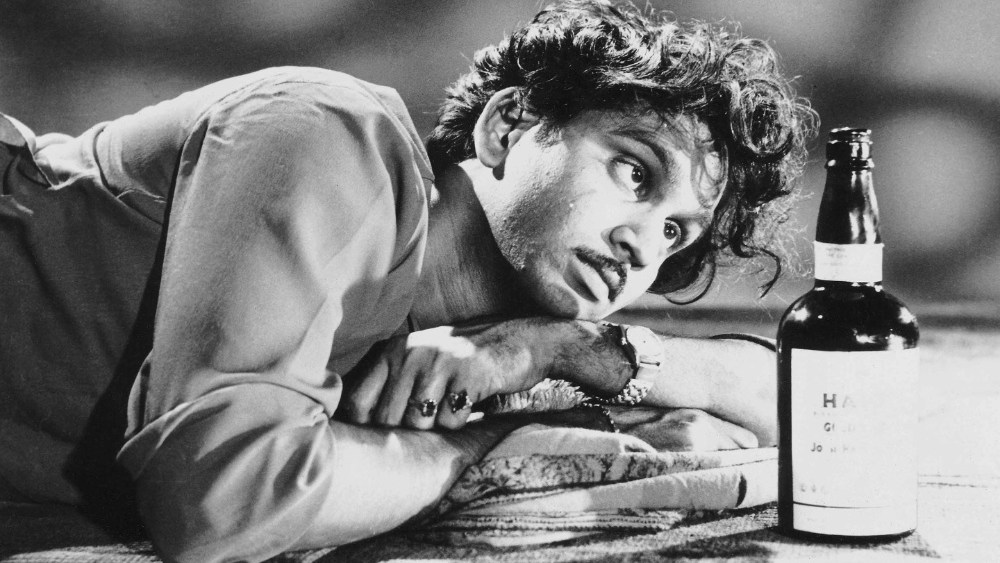The Indian Film Heritage Foundation (FHF) will commemorate the birth centenary of Telugu cinema legend Akkineni Nageswara Rao with a nationwide film festival.
Known for his versatility, Rao worked in the Telugu, Tamil and Hindi-language film industries with more than 250 films over a 71-year career. He has received numerous awards, including the Padma Vibhushan and Dadasaheb Phalke Award, India’s highest acting honor.
Titled “ANR 100 – King Of The Silver Screen”, the event will showcase 10 restored classics across 25 Indian cities from September 20 to 22.
The retrospective, which coincides with Rao’s 100th birth anniversary on September 20, will feature landmark Telugu films spanning six decades. Film buffs can look forward to screenings of early classics like ‘Devadasu’ (1953), ‘Missamma’ (1955) and the mythological fantasy ‘Mayabazar’ (1957). The 1960s are represented by “Bharya Bharthalu” (1961), “Gundamma Katha” (1962), “Doctor Chakravarthi” (1964) and “Sudigundalu” (1968). The selection also includes later hits like “Prem Nagar” (1971) and “Premabhishekam” (1981), and ends with Rao’s final film appearance in “Manam” (2014).
Rao passed away in 2014, leaving behind two generations of actors, including his son Akkineni Nagarjuna and grandsons Naga Chaitanya and Akhil Akkineni.
These screenings will take place in major metro cities such as Hyderabad, Mumbai, Delhi, Chennai and Bengaluru, as well as in smaller cities including Vadodara, Jalandhar and Tumkur.
The festival is a partnership between Film Heritage Foundation, the Akkineni Nageswara Rao family, NFDC – National Film Archive Of India, and multiplex chain PVR-Inox. The funding comes from India’s Ministry of Information and Broadcasting under the National Film Heritage Mission.
Shivendra Singh Dungarpur, director of the Film Heritage Foundation, said: “The selection of films in this retrospective, starting from 1953 to 2014, includes some of his biggest hits that will give people the opportunity to see his remarkable range as an actor and why these films continue. resonate with people decades after they were made and why it is so important to preserve our film heritage.”
Nagarjuna added: “He was rightly called ‘Natasamrat’ for his astonishing ability to play a range of roles, from a saint to an alcoholic to a romantic hero, in a way that has remained in the hearts and minds of people linger. He was a pioneer who founded Annapurna Studios, laying the foundation for the Telugu film industry in our state. We are very proud of his legacy and through this festival, audiences across the country will remember not only an icon of Telugu cinema but also of Indian cinema.
FHF, whose restoration of Girish Kasaravalli’s “Ghatashraddha” is currently playing in Venice, has previously curated film festivals with restored prints of the films of Dev Anand, Dilip Kumar and Amitabh Bachchan.
Bachchan said: “I was fortunate to meet him several times and I was always struck by his humility and simplicity. This is the first time that a retrospective on this scale is being made for Telugu cinema in a manner befitting its stature. The festival is in line with the Film Heritage Foundation’s efforts to bring the heritage of Indian cinema back to the big screen as these films were meant to be seen. This gives today’s audiences a great opportunity to experience the tremendous screen presence, versatility and range of a legendary actor.”
Prithul Kumar, Joint Secretary (Films) and Managing Director, NFDC-National Film Archive Of India, noted that seven of the featured classics have been restored in 4K from prints and negatives from the archive’s collection.
“This event is not only a tribute to a legendary actor, but also a testament to our commitment to preserving and promoting the rich cultural heritage of Indian cinema. By bringing these masterpieces back to the big screen, we hope to instill a deep sense of pride and nostalgia, allowing audiences to reconnect with the golden era of our cinematic history,” said Kumar.





















